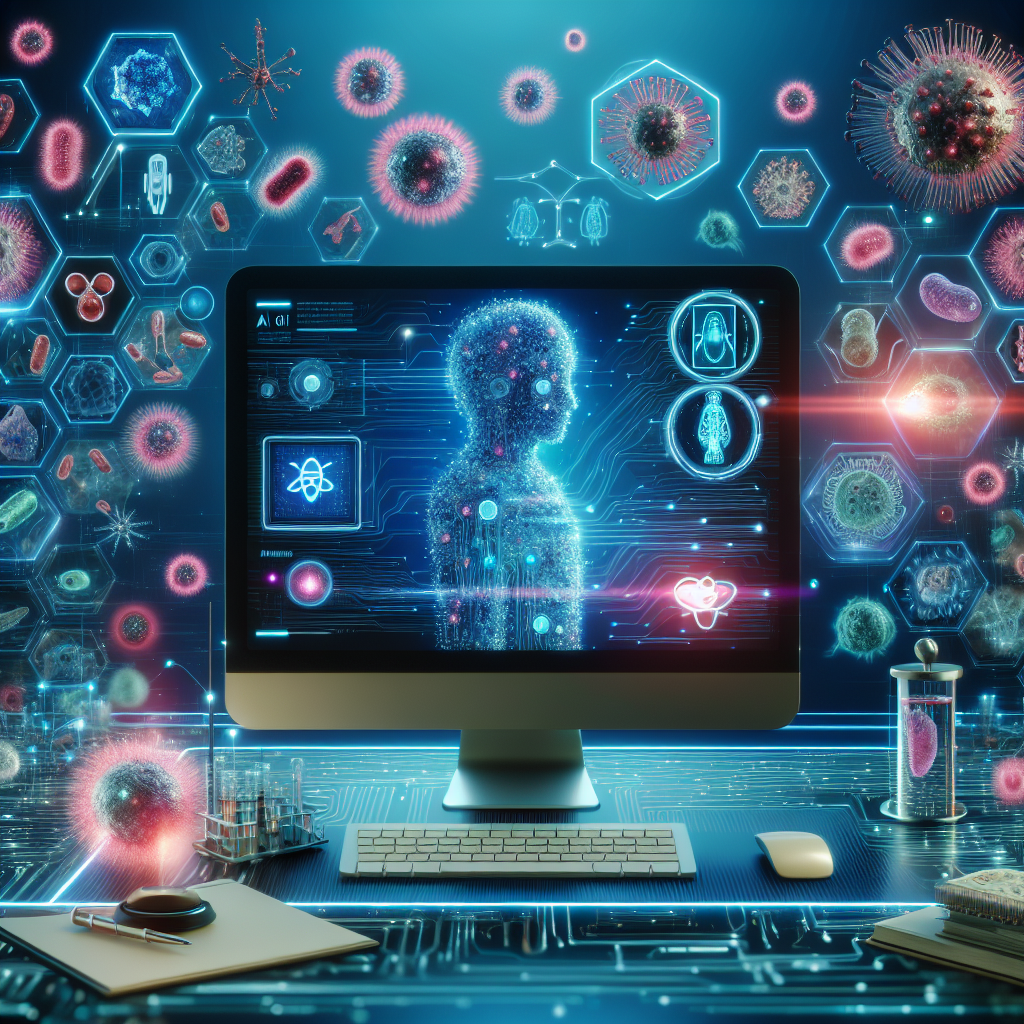Artificial Intelligence (AI) has made significant advancements in various fields, including healthcare. One of the most promising applications of AI in the medical field is its ability to assist in diagnosing diseases. AI algorithms have been developed that can analyze large amounts of data, such as medical images and patient records, to help healthcare professionals make faster and more accurate diagnoses.
The power of AI in diagnosing diseases lies in its ability to process and analyze vast amounts of data much faster than a human can. This can lead to earlier detection of diseases, more accurate diagnoses, and ultimately better patient outcomes. In this article, we will explore the ways in which AI is being used to diagnose diseases and the potential impact it can have on healthcare.
AI in Medical Imaging
One of the most well-known applications of AI in diagnosing diseases is in medical imaging. AI algorithms can analyze images such as X-rays, CT scans, and MRIs to detect abnormalities or signs of disease. These algorithms can be trained on large datasets of medical images to learn patterns and features that are indicative of specific diseases.
For example, AI algorithms have been developed that can detect early signs of diseases such as cancer, stroke, and Alzheimer’s disease in medical images. These algorithms can analyze images with a level of detail and accuracy that may not be possible for human radiologists. This can lead to earlier detection of diseases, which is crucial for improving patient outcomes.
AI in Diagnosing Rare Diseases
Another area where AI is making a significant impact is in diagnosing rare diseases. Rare diseases can be difficult to diagnose because they are not as well-known or understood as more common diseases. AI algorithms can help healthcare professionals identify rare diseases by analyzing large amounts of patient data and medical records.
For example, AI algorithms have been developed that can analyze genetic data to identify rare genetic disorders. By comparing a patient’s genetic data to a database of known genetic mutations, these algorithms can help healthcare professionals diagnose rare diseases more quickly and accurately.
AI in Predictive Diagnostics
AI can also be used in predictive diagnostics, which involves predicting the likelihood of a patient developing a certain disease in the future. By analyzing a patient’s medical history, lifestyle factors, and genetic data, AI algorithms can help identify patients who are at risk of developing certain diseases.
For example, AI algorithms can analyze a patient’s electronic health records to predict the likelihood of developing conditions such as diabetes, heart disease, or cancer. This information can help healthcare professionals intervene early to prevent or manage these diseases before they progress.
Challenges and Limitations of AI in Diagnosing Diseases
While AI has shown great promise in diagnosing diseases, there are still challenges and limitations to be addressed. One of the main challenges is ensuring the accuracy and reliability of AI algorithms. AI algorithms are only as good as the data they are trained on, so it is important to use high-quality, diverse datasets to train these algorithms.
Another challenge is the lack of transparency and interpretability of AI algorithms. Healthcare professionals need to understand how AI algorithms arrive at their diagnoses in order to trust and use them effectively. Researchers are working on developing more transparent and interpretable AI algorithms to address this issue.
Furthermore, there are ethical and privacy concerns surrounding the use of AI in diagnosing diseases. Healthcare professionals must ensure that patient data is handled securely and in compliance with privacy regulations. Additionally, there is a concern that AI algorithms could perpetuate biases or inequalities in healthcare if not properly designed and implemented.
FAQs
Q: Can AI completely replace human healthcare professionals in diagnosing diseases?
A: While AI has shown great promise in diagnosing diseases, it is unlikely to completely replace human healthcare professionals. AI algorithms can assist healthcare professionals in making faster and more accurate diagnoses, but human expertise and judgment are still essential in interpreting results and making treatment decisions.
Q: How can AI algorithms be trained to diagnose diseases?
A: AI algorithms can be trained using supervised learning, where they are provided with labeled datasets of medical images or patient records. The algorithms learn patterns and features from these datasets to make predictions about new data. Researchers also use unsupervised learning and reinforcement learning techniques to train AI algorithms in diagnosing diseases.
Q: Are there any regulatory approvals required for using AI in diagnosing diseases?
A: In many countries, regulatory approvals are required for using AI algorithms in diagnosing diseases. Healthcare organizations must ensure that AI algorithms meet regulatory standards for accuracy, safety, and privacy before they can be used in clinical settings. Regulatory bodies such as the FDA in the United States and the EMA in Europe provide guidelines for the use of AI in healthcare.
Q: What are the potential benefits of using AI in diagnosing diseases?
A: The potential benefits of using AI in diagnosing diseases include faster and more accurate diagnoses, earlier detection of diseases, and improved patient outcomes. AI algorithms can help healthcare professionals identify rare diseases, predict the likelihood of developing certain diseases, and assist in making treatment decisions.
In conclusion, the power of AI in diagnosing diseases lies in its ability to process and analyze vast amounts of data to assist healthcare professionals in making faster and more accurate diagnoses. AI algorithms have shown great promise in medical imaging, diagnosing rare diseases, and predictive diagnostics. While there are challenges and limitations to be addressed, the potential benefits of using AI in diagnosing diseases are significant. As AI continues to advance, it is likely to play an increasingly important role in the future of healthcare.

